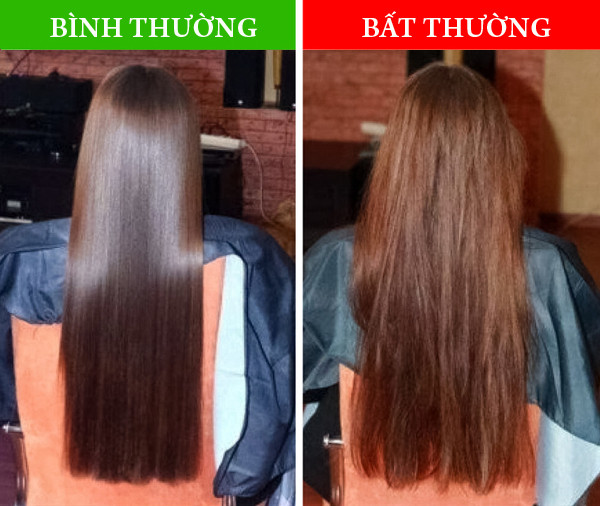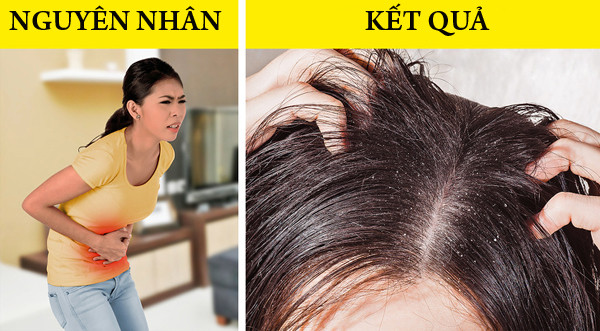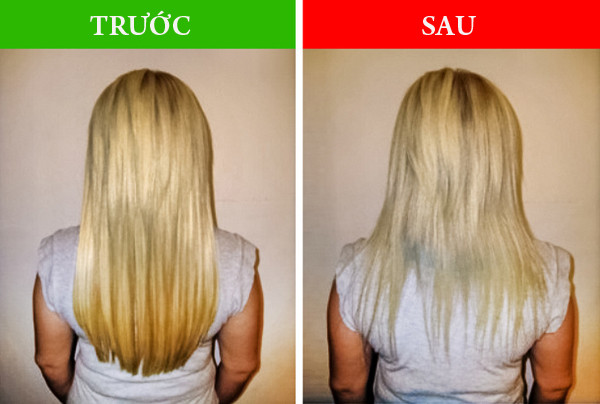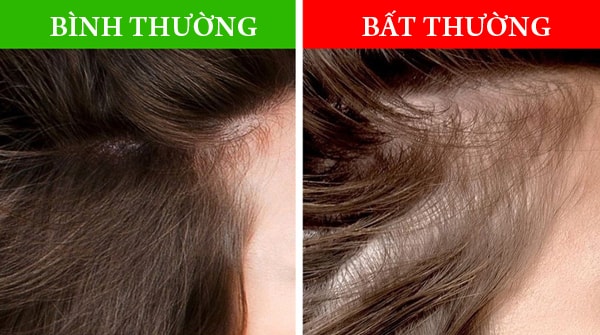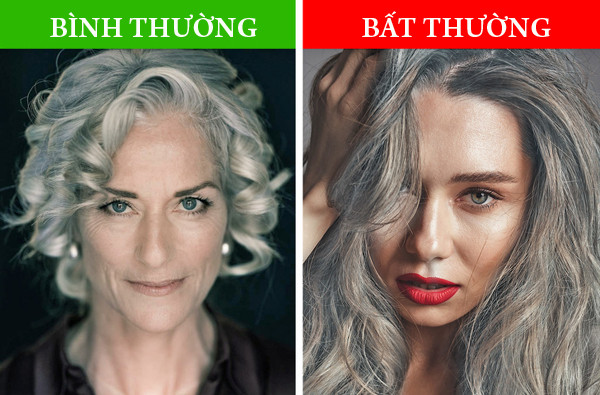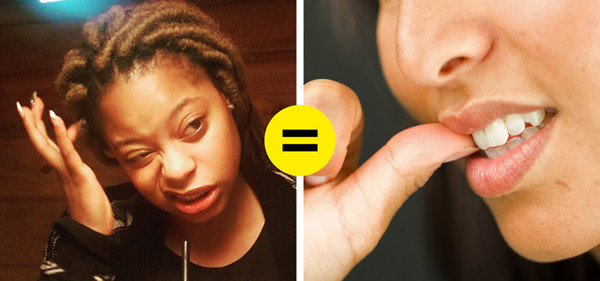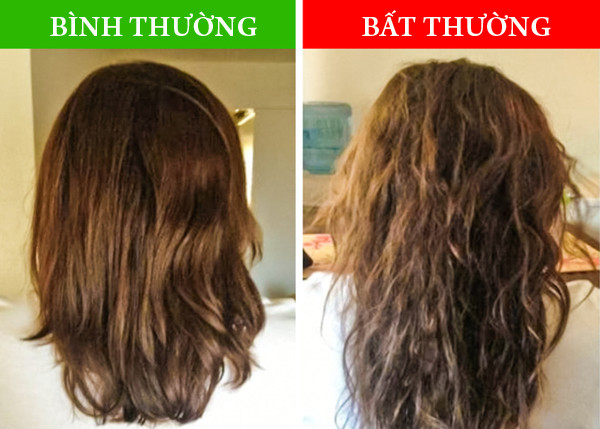8 health problems revealed by your hair condition
Hair loss, thinning, or split ends can be warning signs of liver, immune, or hormonal problems.
|
tangled hair The first cause of dry, tangled hair is lack of care, overuse of hair chemicals or frequent use of heat styling products. Another cause is the body's lack of vitamins and essential minerals, which also makes hair look weak. Specifically, tangled hair warns that the body is lacking selenium, sulfur and phosphorus. |
|
Dandruff Dandruff is not a dangerous condition, but it is uncomfortable and unsightly. There are many reasons for dandruff, including excessive use of styling products, frequent stress, an unhealthy diet (too much starch and fat), digestive problems, or a weakened immune system. If you have yellow dandruff, you may have seborrheic dermatitis, a skin condition that is difficult to cure. If anti-dandruff shampoos do not help, see a dermatologist for the best treatment. |
|
Thin and brittle hair Thin and brittle hair can be caused by a lack of protein in the body. In addition to hair, you may notice the condition when your skin is drier and your nails are weak and brittle. Brittle hair is also a sign of Cushing's disease. If you have additional symptoms such as chronic insomnia, high blood pressure, and unexplained back pain, you should see a doctor for a more thorough examination. |
|
Alopecia areata You can lose up to 100 hairs a day, unless you are pregnant, pre-menopausal or have other medical conditions that can cause more hair loss. The easiest way to check if your hair loss is normal is to run your fingers through your hair and pull it from root to tip. If you lose 0-2 hairs, everything is fine, if you lose 3-5 hairs or more, you should see a doctor. Hair loss can be a warning sign that there is a problem with your endocrine or immune system. It can also be a sign of diabetes. |
|
Oily hair Oily hair is often caused by an unbalanced diet. To address this, you should limit your intake of animal fats, eat less meat, fried foods, sweets, smoked foods, alcohol and coffee. Adding a few drops of tea tree oil to your shampoo can help reduce the oiliness of your scalp. If this tip does not improve the situation, you may have metabolic problems, hormonal imbalance or liver problems. In this case, you should see a doctor for the most accurate diagnosis. |
|
Premature graying of hair In theory, grey hair is largely down to genetic factors. As we age, the number of melanocytes responsible for pigment production decreases, causing hair to turn grey more quickly. On average, women start to see grey hair in their 30s and 40s, but some people start to see grey hair earlier. If you have grey hair, it is often due to severe stress, chronic fatigue or poor diet (a diet lacking in protein). |
|
Itchy scalp If you have an itchy scalp along with pimples, sores, flaking, and other skin irritations, you should see a dermatologist right away to make sure you don’t have psoriasis or eczema. If you have an itchy scalp without any other symptoms, the problem may be a nervous system disorder caused by stress. In this case, you should take herbs and increase your vitamin B1 and B6. |
|
Dry and split hair Dry and split hair is a sign of protein deficiency, especially iron deficiency. This problem is also common in people who are on a strict diet or have hormonal problems. You should increase your intake of fish, carrots, and orange juice to supplement vitamins. |

